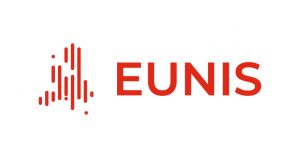BencHEIT is a survey on IT costs and volumes of higher education institutions. It’s participation is voluntary and free of charge. It is invented, developed and managed by CIOs (within […]
Category: survey
Survey on Research Information Management Practices
euroCRIS, a Strategic Partner of EUNIS, and OCLC Research, recently announced a jointly-developed Survey on Research Information Management Practices, which offers research institutions worldwide the opportunity to share information about their practices. […]
Student Digital Experience Tracker: join the survey
The Student Digital Experience Tracker is run by Jisc. It is a survey and student engagement process designed to help you learn more about students’ experiences of digital learning. 140 universities and major […]
Webinar on Student Digital Experience Tracker: 21 Nov, 13.00 CET
A reminder that the webinar to find out about participating in the free Student Digital Experience Tracker is on Tuesday 21st November at 13.00 CET (12.00 UK and Portugal). Please register now to receive […]
Participate in the Student Digital Experience Tracker
The Student Digital Experience Tracker is a survey and student engagement process designed to help you learn more about students’ experiences of digital learning. It is run by Jisc and […]


